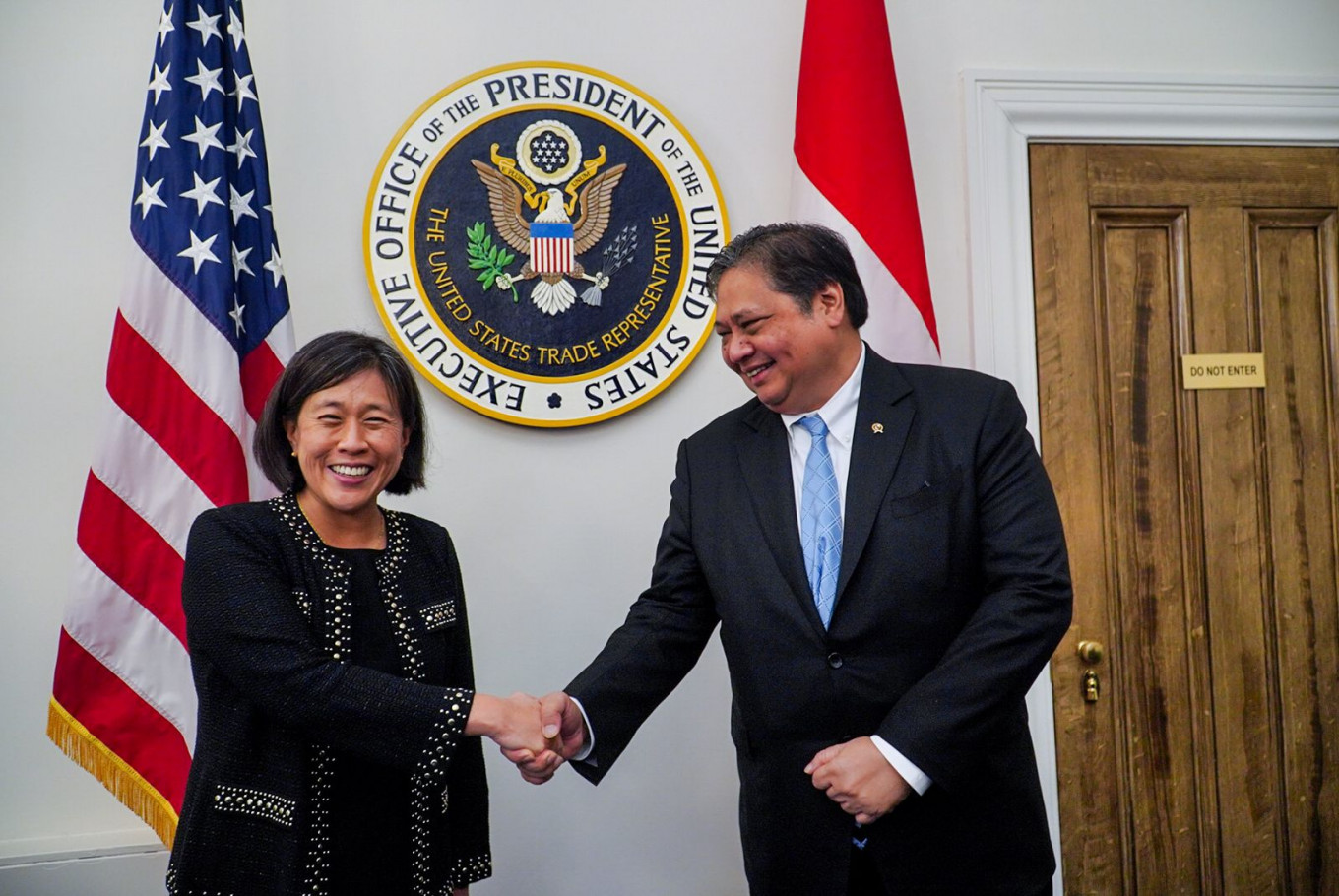China's Exclusive Trade Envoy: Security Chief In High-Stakes U.S. Talks

Table of Contents
The Unconventional Choice: Why a Security Chief as Trade Envoy?
China's decision to appoint a security chief for these crucial negotiations is unprecedented and raises many eyebrows. Why choose a figure typically associated with national security and law enforcement to lead trade talks? Several interpretations are possible. This appointment could signal an increased prioritization of national security concerns within China's trade strategy. It might reflect a hardening of China's stance, suggesting a less compromising approach in negotiations. Alternatively, it could indicate a belief that security and economic interests are inextricably linked in the current geopolitical climate.
-
Analysis of the security chief's background and expertise: Understanding the envoy's past experience in national security and intelligence gathering will be crucial in predicting their negotiation style and priorities. Their background likely informs a perspective emphasizing protection of national interests and technological assets.
-
Comparison to previous trade envoys and their backgrounds: Historically, trade envoys have typically come from economic or diplomatic backgrounds. This stark departure suggests a fundamental change in China's approach to trade negotiations. The shift highlights the growing importance of national security considerations in economic policy.
-
Expert opinions on the strategic implications of this choice: Experts are divided, with some seeing it as a sign of escalating tensions and a more assertive China, while others argue it reflects a more integrated approach to national strategy where security and economics are inseparable.
High-Stakes Issues on the Negotiation Table
The US-China trade talks encompass a multitude of complex issues, many of which have significant security implications. Technology transfer, intellectual property rights, and national security concerns related to specific industries (semiconductors, telecommunications, artificial intelligence) are at the forefront. These are not merely economic disputes; they are battles for technological dominance and global influence.
-
Specific examples of contentious trade issues: The ongoing dispute over Huawei's access to US technology, the restrictions on the export of advanced chips to China, and the accusations of intellectual property theft are just a few examples of the high-stakes issues on the table.
-
Potential areas of compromise and conflict: Finding common ground will be challenging. While there may be room for compromise on some issues, the core concerns regarding national security and technological superiority are likely to remain highly contentious.
-
Impact on global markets and the world economy: The outcome of these negotiations will have far-reaching consequences for global supply chains, economic stability, and the broader geopolitical landscape. Uncertainty is likely to persist until a clearer outcome is reached.
Implications for US-China Relations
The success or failure of these negotiations will profoundly impact US-China relations. A breakthrough could lead to a period of reduced tensions and increased cooperation, while a stalemate or escalation could further strain the already fragile relationship, potentially pushing the two nations toward further decoupling.
-
Short-term and long-term implications for bilateral relations: Even a partial agreement could signal a willingness to manage differences, while failure could exacerbate existing tensions and lead to further retaliatory measures. Long-term, the relationship may move towards either greater cooperation or heightened competition.
-
Impact on global supply chains and economic stability: The outcome will shape global supply chains, potentially leading to restructuring and regionalization. Economic stability will depend on the level of cooperation or conflict resulting from the negotiations.
-
Potential for increased cooperation or further decoupling: The choice between cooperation and decoupling hinges on the ability of both sides to find common ground. A complete failure to reach a compromise will likely lead to further economic separation.
Analyzing the Envoy's Negotiating Strategy
Predicting the negotiating strategy of China's exclusive trade envoy is challenging, but their background suggests a potential approach. They may employ a firm, uncompromising stance, prioritizing national security above all else. Their leverage lies in China's vast market and its growing technological capabilities. However, their potential weakness could be a lack of experience in traditional trade negotiations.
-
Potential negotiating tactics: We can expect assertive and potentially confrontational tactics, with a focus on protecting China's technological interests and preventing what they perceive as unfair trade practices.
-
Strengths and weaknesses of the envoy's position: Their strength is the backing of the Chinese government and their understanding of national security issues. Their weakness may lie in a lack of familiarity with the nuances of economic diplomacy.
-
Predictions about the negotiation's outcome based on the envoy's approach: The outcome will depend heavily on whether the envoy can find common ground while maintaining China's core objectives. The negotiations are likely to be complex and protracted.
Conclusion: The Future of US-China Trade Relations Hinges on China's Exclusive Trade Envoy
The appointment of China's exclusive trade envoy, a security chief, marks a significant turning point in US-China trade relations. The high-stakes issues at play, ranging from technology transfer to intellectual property rights, underscore the deep intertwining of economic and security concerns. The envoy's negotiating strategy and the overall outcome of the talks will profoundly influence the trajectory of the bilateral relationship and have major ramifications for the global economy. To stay informed about the evolving situation and the impact of China's exclusive trade envoy, follow reputable news sources covering international relations and economics. Subscribe to newsletters specializing in US-China relations for in-depth analysis and updates on these crucial negotiations. The future of US-China trade, and indeed global trade, hangs in the balance.

Featured Posts
-
 Is John Wick 5 Happening Keanu Reeves Latest Comments
May 11, 2025
Is John Wick 5 Happening Keanu Reeves Latest Comments
May 11, 2025 -
 Manon Fiorot Path To Ufc Gold
May 11, 2025
Manon Fiorot Path To Ufc Gold
May 11, 2025 -
 Analysis Bellingers Impact On Protecting Aaron Judge For Yankees
May 11, 2025
Analysis Bellingers Impact On Protecting Aaron Judge For Yankees
May 11, 2025 -
 Resi Awards 2025 A Look At The Winning Projects
May 11, 2025
Resi Awards 2025 A Look At The Winning Projects
May 11, 2025 -
 Aaron Judge 2024 Yankees Magazines Season Outlook
May 11, 2025
Aaron Judge 2024 Yankees Magazines Season Outlook
May 11, 2025
